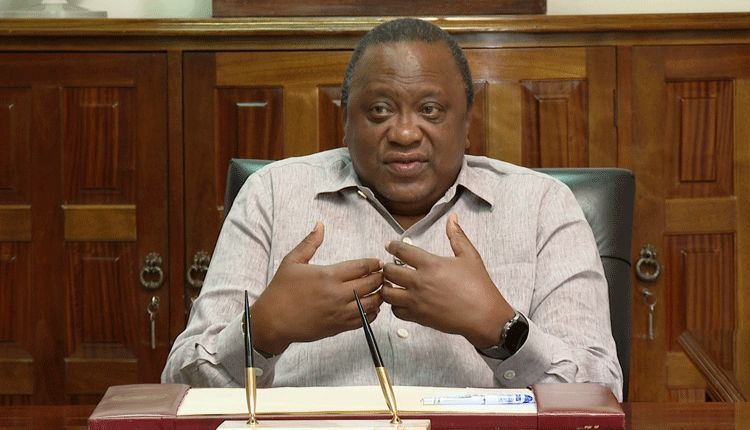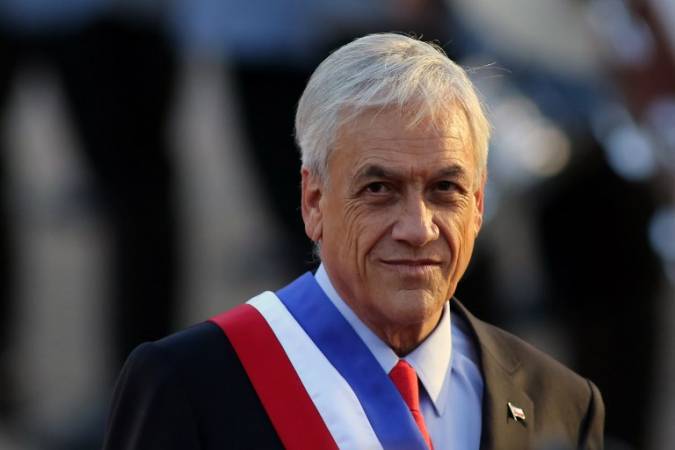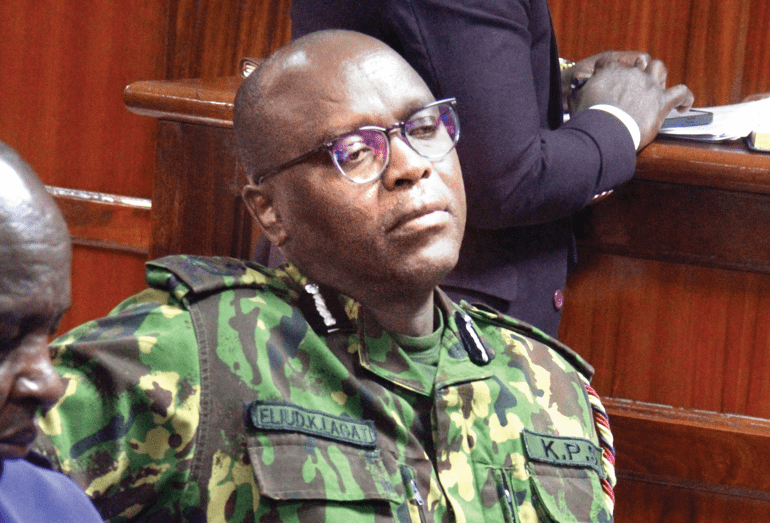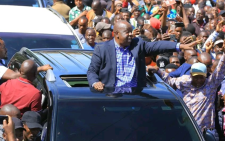President Uhuru welcomes Pandora Papers exposing leaders’ financial secrets

Rawlings Otieno and Agencies
President Uhuru Kenyatta yesterday gave a swift response to the leaked financial secrets of the rich and powerful, saying the move “will lift the veil of secrecy and darkness on those who cannot explain their wealth.”
Dubbed the Pandora Papers, the data involves millions of documents containing offshore deals and assets of more than 100 billionaires, more than 30 world leaders and 300 public officials.
President Kenyatta, who is away on official visit to the Caribbean island of Barbados, stated that the leaks would help in enhancing financial transparency and openness required in the country and globally.
“The Pandora Papers and subsequent follow up audits will lift that veil of secrecy and darkness for those who cannot explain their assets or wealth,” said President Kenyatta.
In a statement released to newsrooms through State House Spokesperson Kanze Dena, the President welcomed the expose that has lifted the veil on intricate deals and investments in the world’s tax havens that attract the rich and powerful because of their friendly tax regimes and secrecy.
Leaked data
Pandora Papers, the biggest trove of leaked offshore data in history, include 11.9 million files from companies hired by wealthy clients to create offshore structures and trusts in tax havens such as Panama, Dubai, Monaco, Switzerland and the Cayman Islands.
The documents expose the secret offshore affairs of 35 world leaders, including current and former presidents, prime ministers and heads of state and also shine a light on the secret finances of more than 300 other public officials such as government ministers, judges, mayors and military generals in more than 90 countries globally.
Data shows that the Kenyatta family owned a network of offshore companies for decades with Uhuru and six members of his family being linked to 13 firms.
The investments include a company with stocks and bonds worth Sh3.13 billion ($30 million) which were discovered among hundreds of thousands of pages of administrative paperwork from the archives of 14 law firms and service providers in Panama and the British Virgin Islands (BVI) and other tax havens.
Documents show that a Foundation called Varies was set up in 2003 in Panama, naming President Kenyatta’s mother, Mama Ngina, as the first benefactor and Uhuru as the second beneficiary.
Reacting to the story yesterday, Uhuru said: “My attention has been drawn to the ongoing media coverage of the International Consortium of Investigative Journalism (ICIJ) Pandora Papers leaks.
Whilst I will respond comprehensively on my return from my State visit to the Americas, these reports will go a long way in enhancing the financial transparency and openness that we require in Kenya and around the globe.
The movement of illicit funds, proceeds of crime and corruption thrive in an environment of secrecy and darkness.”
The Kenyatta family has a long history of business and investments across the economy and has interest in some of the biggest companies in sectors such as banking, real estate, insurance, hospitality, agriculture and the media, among others. The companies employ thousands of Kenyans.
In 2018, President Kenyatta when asked on BBC’s Hardtalk programme about his family’s wealth, had stated that theirs was an honest business conducted above board.
“I have always stated, what we own, what we have, is open to the public. As a public servant, I am supposed to make my wealth known and we declare every year.
And I have always said if there is an instance where somebody can say that what we have done or obtained has not been legitimate, say so. We are ready to face any court.”
More than 100 billionaires feature in the leaked data, as well as celebrities, rock stars and business leaders.
Many use shell companies to hold luxury items such as property and yachts, as well as incognito bank accounts.
There is even art ranging from looted Cambodian antiquities to paintings by Picasso and murals by Banksy.
The Pandora Papers reveal the inner workings of what is a shadow financial world, providing a rare window into the hidden operations of a global offshore economy that enables some of the world’s richest people to hide their wealth and in some cases pay little or no tax.
There are emails, memos, incorporation records, share certificates, compliance reports and complex diagrams showing labyrinthine corporate structures.
Often, they allow the true owners of opaque shell companies to be identified for the first time.
The files were leaked to the International Consortium of Investigative Journalists (ICIJ) in Washington.
It shared access to the leaked data with select media partners including the Guardian, BBC Panorama, Le Monde and the Washington Post. More than 600 journalists have sifted through the files as part of a massive global investigation.
The Pandora Papers represent the latest – and largest in terms of data volume – in a series of major leaks of financial data that have convulsed the offshore world since 2013.
Setting up or benefiting from offshore entities is not itself illegal, and in some cases, people may have legitimate reasons, such as security, for doing so.
But the secrecy offered by tax havens has at times proven attractive to tax evaders, fraudsters and money launderers, some of whom are exposed in the files.
Other wealthy individuals and companies stash their assets offshore to avoid paying tax elsewhere, a legal activity estimated to cost governments billions in lost revenues.
After more than 18 months analysing the data in the public interest, the Guardian and other media outlets have started publishing their findings, beginning with revelations about the offshore financial affairs of some of the most powerful political leaders in the world.
Not everyone named in the Pandora Papers is accused of wrongdoing.
The leaked files reveal that Tony and Cherie Blair saved £312,000 in property taxes when they purchased a London building partially owned by the family of a prominent Bahraini minister.
While the move was not illegal, and there is no evidence the Blairs proactively sought to avoid property taxes, the deal highlights a loophole that has enabled wealthy property owners not to pay a tax that is commonplace for ordinary Britons.
The leaked records vividly illustrate the central coordinating role London plays in the murky offshore world.
The UK capital is home to wealth managers, law firms, company formation agents and accountants.
All exist to serve their ultra-rich clients. Many are foreign-born tycoons who enjoy “non-domicile” status, which means they pay no tax on their overseas assets.
Ukraine’s President Volodymyr Zelenskiy, who was elected in 2019 on a pledge to clean up his country’s notoriously corrupt and oligarch-influenced economy, is also named in the leak.
During the campaign, Zelenskiy transferred his 25 per cent stake in an offshore company to a close friend who now works as the President’s top adviser, the files suggest.
Zelenskiy declined to comment and it is unclear if he remains a beneficiary.
The Pandora Papers also place a revealing spotlight on the offshore system itself.
In a development likely to prove embarrassing for US President Joe Biden, who has pledged to lead efforts internationally to bring transparency to the global financial system, the US emerges from the leak as a leading tax haven.
The files suggest the state of South Dakota, in particular, is sheltering billions of dollars in wealth linked to individuals previously accused of serious financial crimes.
The offshore trail also stretches from Africa to Latin America to Asia, and is likely to pose difficult questions for politicians across the world.
In Pakistan, Moonis Elachi, a prominent minister in Prime Minister Imran Khan’s government, contacted an offshore provider in Singapore about investing Sh3.72 billion ($33.7 million).
The Pandora Papers also reveal some of the unseen repercussions of previous offshore leaks, which spurred modest reforms in some parts of the world, such as the BVI, which now keeps a record of the real owners of companies registered there.
However, the newly leaked data shows money shifting around offshore destinations, as wealthy clients and their advisers adjust to new realities.
Mixed reactions
Leaders across the world reacted to the leak. Russian’s Vladimir Putin’s spokesperson Dmitry Peskov dismissed the Pandora papers as “unsubstantiated claims” and said that no hidden wealth was found in the Russian president’s inner circle.
Edward Snowden, the whistleblower behind the biggest intelligence leak in history, Wikileaks, has paid tribute to whoever leaked the Pandora Papers. “Hats off to the source,” he said.
UK Premier Boris Johnson has insisted that all donations to the Conservative party are vetted in accordance with rules.
The leak revealed that Mohammed Amersi, a donor to his leadership campaign was involved in one of Europe’s biggest corruption scandals.
Czech Premier Andrej Babiš claimed the disclosure that he used a convoluted offshore structure to buy a mansion £13m in the south of France is a deliberate attempt to damage his chances in this week’s General Election.
He said: “I don’t own any offshore, I don’t own any real estate in France, and all the money I lent then I got back, so let the police investigate it.”
Pakistan’s prime minister, Imran Khan, promised that his government will investigate all those mentioned in the leak.
Moonis Elahi, a prominent minister in Khan’s government, contacted an offshore provider in Singapore about investing $33.7 million, the leak reveals.
Jordan’s King Abdullah II claimed the leak was defamatory after it revealed he disguised his ownership of properties via a series of offshore firms.
In a statement he said reports about leak “included inaccuracies and distorted and exaggerated the facts”.
The Tony Blair Institute has accused the Guardian of deliberately misrepresenting the purchase of Cherie Blair’s office premises.
It says the Blairs have always paid their taxes in full and have never used offshore avoidance schemes of any kind.










